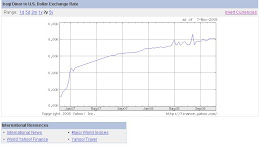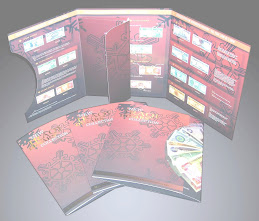Their main grievance is alleged lack of international commitment that has led to a number of companies attending the expo seeing little in serious investment and not enough firms are interested in conducting business.
"Iraq is in need of trillions of dollars to pursue the rebuilding and development of infrastructure," an Iraqi official told the GDN.
"Americans have committed $50 million a year to pursue the rebuilding of our infrastructure and so far this year they have spent $30m to $40m on setting up roads, residential blocks and power stations in Iraq."
"Iraq is in need of more than 3m residential homes and approximately 6,000mw of power.
"The event here today has a number of big companies but the problem that we have witnessed is the fact that decision-makers from the Iraqi ministries have not shown up, meaning that all the large projects are not available to be propagated."
A representative from the Iraq-based infrastructure firm Al Qasswara Group said that the exhibition has amounted to very little in terms of actual deals. So far the only deal his company has negotiated has been the purchase of diggers from the Omani Chamber of Commerce.
"We have seen a number of our counterparts from Iraq but there hasn't been anyone that is interested in investing in long-term business," Al Qasswara Group chief executive Luqman Al Janaby said.
Merjal is another Iraq-based company that deals with contracting and infrastructure. They recently installed a 350mw gas power station in Kurkuk as well as a 500mw gas turbine power station in Arbil. The company is currently installing a 150 tonne per hour boiler in Baghdad.
"The expo has been good for networking with other companies but from a business point of view has not been very fruitful," Merjal Oil and Industry consultant adviser Kahtan H J Al Anbaki said.
"The fact that no decision-makers from Iraq have attended is an issue, but another problem is that the expo has been held over a weekend which has led to less local businessmen attending.
"The ideal set-up for this expo would have been a concise programme of tenders in Iraq resumed by direct dialogue to establish acquisitions between companies."
Al Bilal Group, another Iraqi-based infrastructure firm, has said the event has seen low interest and that companies that want to stabilise in Iraq now need to seek partnerships soon.
"The Iraqi government and the American investors are working in Iraq," Al Bilal Group vice-president Majid Ahmed said.
"The entire infrastructure needs to be renewed with a new system and design and there are a limitless number of opportunities for firms interested in investing in Iraq.
"Some people say that in the next two years these problems will begin to be addressed but realistically there is at least another five to six years work in Iraq until a global standard of infrastructure is even beginning to take shape."
(Source)AlSabah

